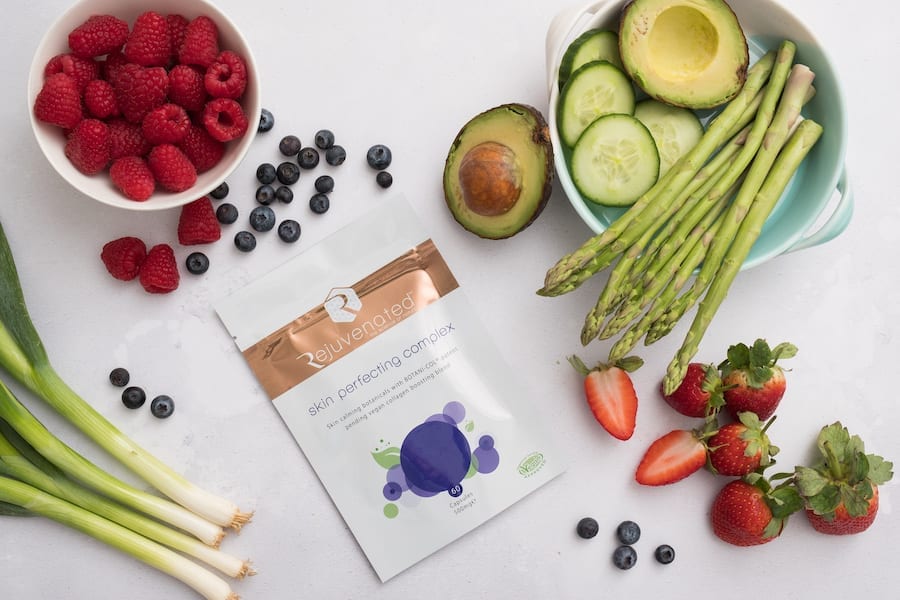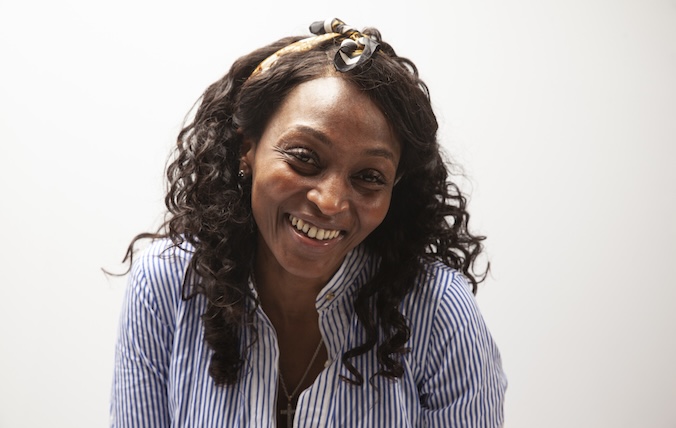A Vegan’s Guide to Collagen

Does vegan collagen exist?
Collagen is within our bones, joints, nails, hair, skin, muscles and ligaments. It is derived mostly from animal sources including fish, meat and chicken. It is the extraction of collagen from these sources that can give us powdered collagen.
Collagen requires the composition of several amino acids to actually make up collagen. No plant source has a specific blend of amino acids to be able to mirror the components of collagen.
Can vegans use collagen?
Even though there is not a complete collagen protein available in the plant world, there is now available a patent-pending vegan blend of amino acids to offer these benefits to non-meat and fish eaters: Botani-col®. Botani-col has been formulated from plant-based amino acids in the same ratio as collagen from conventional sources. This makes it a great vegan substitute for collagen.
The first product that it has been included in is Skin Perfecting Complex by Rejuvenated Ltd.The amino acid blend is combined with skin calming ingredients to boost collagen levels and promote a more even complexion. Skin Perfecting Complex also contains vitamin C and zinc, that the body needs to stimulate collagen production. Reviews of this product have been very positive from those who follow a vegetarian or vegan diet.
Is vegan collagen as effective as marine collagen?
There are no complete studies to show the effectiveness of plant sources of collagen at this time. As the numbers who follow a vegan or vegetarian diet is increasing then this is an area that science will be looking closely at.
Currently, the most effective trials have been shown in high potency hydrolysed marine collagen supplements but these aren’t vegan. They are generally supplied in powder form and mixed into a beverage, one such award-winning supplement is Collagen Shots. It contains 10,000mg of hydrolysed marine collagen with hyaluronic acid, vitamin C, copper, zinc and açai berry.
At this time products offering plant-based amino acids are in capsule form so don’t offer the same volume of ingredient. However, they serve well as a vegan alternative for collagen to help you achieve glowing skin.
How is vegan collagen made?
There is no one plant which contains the complete amino acid blend to create collagen, it is a very difficult procedure to combine the amino acids into the same ratio as those found in animal and fish proteins. Rejuvenated have achieved this with Botani-col, a patent pending formula.
The benefits of vegan collagen
- As more of us are becoming interested in following a plant-based life, we are looking for vegan alternatives to animal-based collagens.
- Plant based options may be cheaper making them more affordable to the masses. Collagen is used for wound dressings and it will be advantageous to have a vegan alternative, not only for those who opt for a plant-based diet, but it also has benefits for those whose religious faith dictates that they follow a vegan based diet. Botani-col by Rejuvenated has the potential to be used in this type of dressing.
- Having a vegan based collagen allows those on a plant based lifestyle to have access to a product which can help to support collagen levels within the skin and enjoy some of the benefits of those who consume conventional collagens. This has been the case with Skin Perfecting Complex, customers have given very positive feedback and the results are promising.
Food sources to help vegans boost collagen
Collagen synthesis is an intricate process, and it requires a number of nutrients to boost collagen levels within the body. Although there is no single food source of vegan collagen, some plants do contain specific amino acids which contribute to its formation.
Combining certain plants can potentially provide the building blocks to stimulate collagen synthesis, however it is difficult to ensure that you get a complete blend of ingredients.
To help get a collagen boost on a vegan diet you can try:
- Quinoa is rich in protein as is pea protein, both contain all 9 essential amino acids that the body cannot produce on its own. These amino acids provide some of those that are essential for collagen production.
- Glycine is a key amino acid in the generation of collagen, and it can be found in foods such as beans, nuts and seeds. Another amino acid, proline is found in asparagus, mushrooms and cabbage.
- Soy products such as tempeh, tofu and soy protein are rich sources of amino acids as are beans and pulses.
- Vitamin C is a key nutrient which enhances the absorption of amino acids. It supports healthy collagen formation and works to protect skin cells from the sun and other environmental damage.






